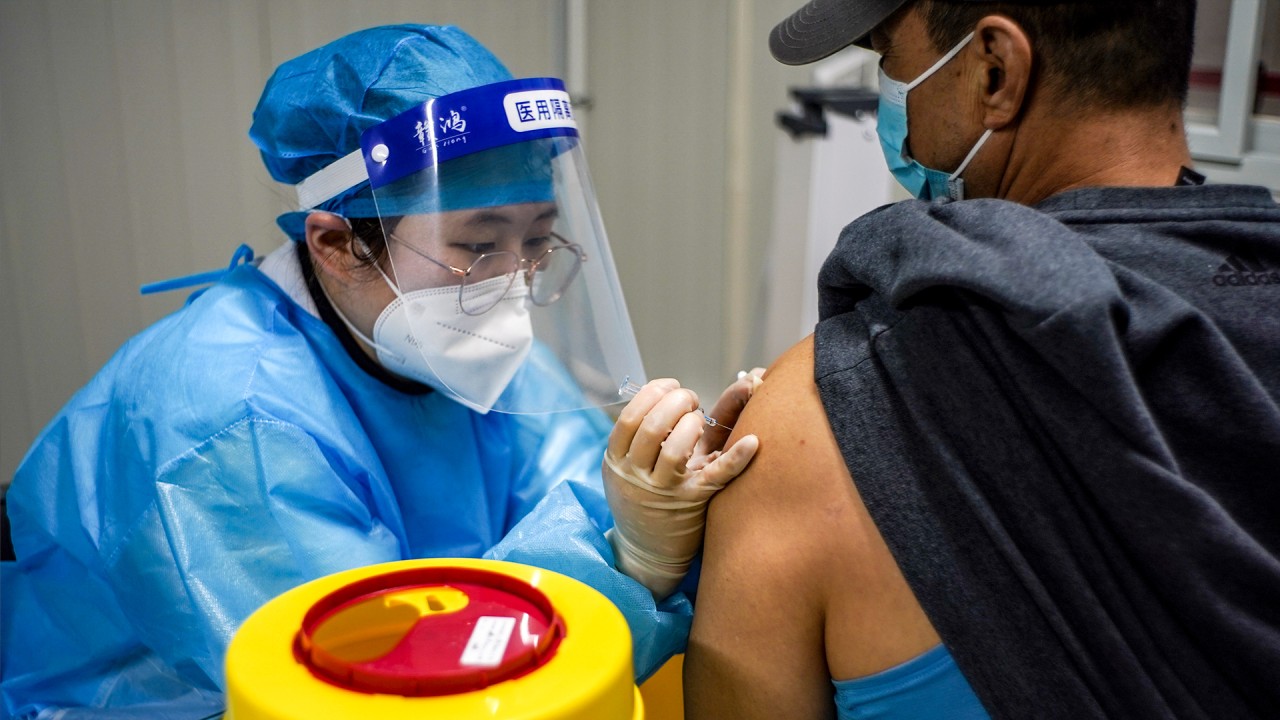
China says Covid-19 jabs are safe for people with allergies amid vaccine push
- Health official tells state television that serious reactions like anaphylactic shock have occurred at a rate of less than 1 in 100 million
- Vaccination roll-out has fallen behind those of other countries, and Beijing wants 40 per cent of the population immunised by June
“The current vaccines do not contain antibiotics and therefore this is not a contraindication,” An added.
Why China is finally including the elderly in its Covid-19 vaccine programme
“The more serious ones like anaphylactic shock have occurred at a very, very low rate, less than 1 out of 100 million, about 15 minutes after vaccination,” he said. “It is important to stay at the vaccination site for 30 minutes afterwards so that serious adverse events like swelling in the throat or anaphylactic shock can be attended to immediately.”
According to the latest guidelines, it is also safe for people with compromised immune systems and serious respiratory or cardiovascular diseases to get the Covid-19 jab.

Chinese authorities have stepped up efforts to boost vaccination, including a major campaign in the capital Beijing. In the eastern Dongcheng district, a sign reads: “Taking the Covid-19 vaccine is every citizen’s right, obligation and responsibility.” It says people with diabetes, high blood pressure, heart stents, only one kidney, and aged in their 90s have been inoculated with no problem, imploring residents to “please believe in the science”.
And local authorities in some districts have begun publicly shaming companies and housing complexes with low vaccination rates. In central Xicheng district, coloured plates are given to the management of buildings to display their inoculation rates, with green indicating 80 per cent of residents or workers have had the jab, orange for 40 to 80 per cent, and red for a rate below 40 per cent, Beijing Daily reported on Monday. Buses have also been converted for use as mobile vaccination sites in the district.



